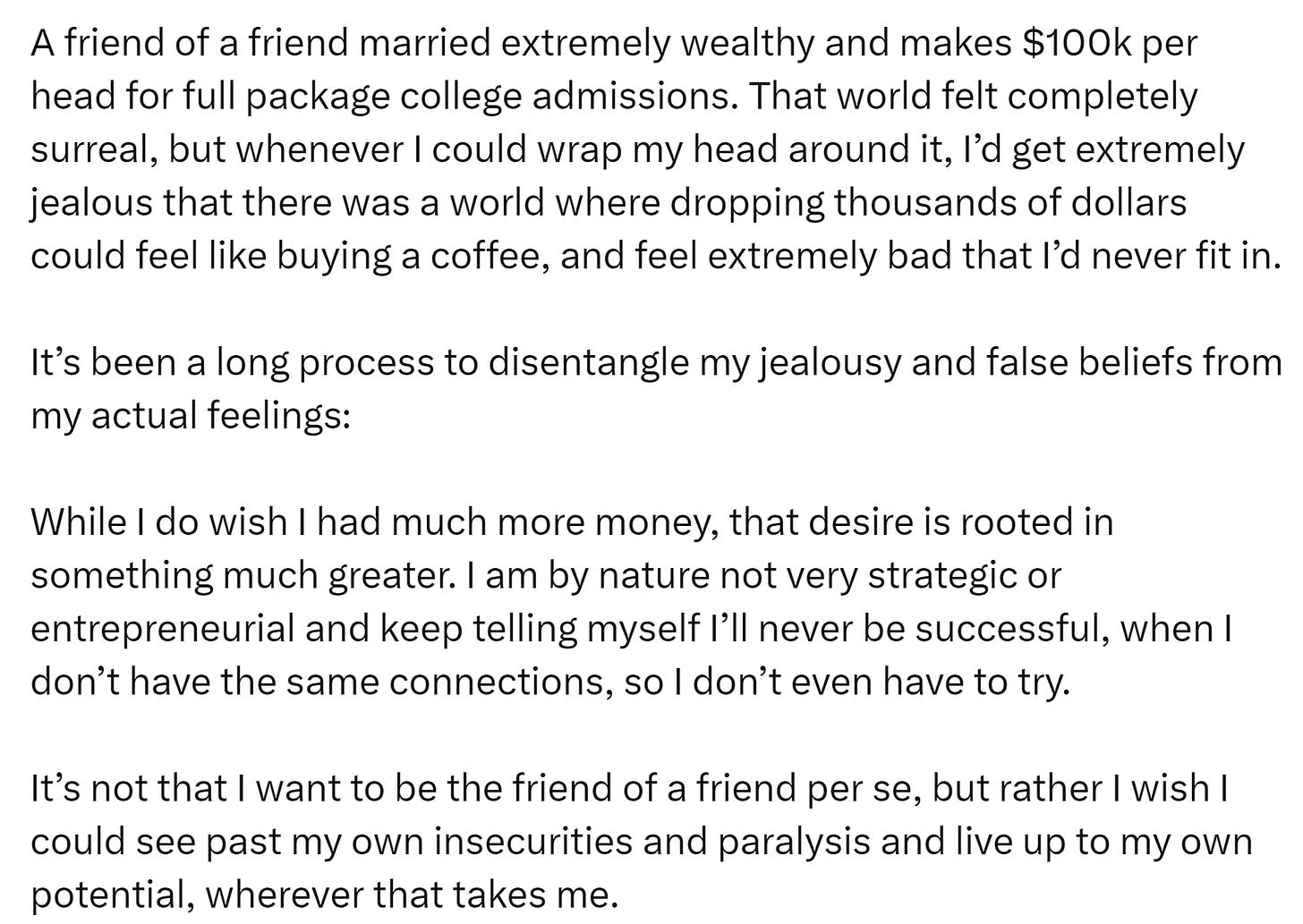How I Grew My Twitter Following by ~20% in Six Weeks
Steal My "Secrets"
Often when I see someone with a larger following count than me on Twitter, I scrunch up my nose and think to myself, “Why can’t I have whatever they’re having?” Then I’d look at my Twitter, feel bad about not having more followers, and feel too demotivated to tweet.
This cycle with low motivation has lasted for a while. As we can see from this graph from Social Blade, I started entering my dry spell in January of this year. You don’t need to be a data scientist to see that in my highlighted yellow portion, my monthly gained follower numbers ACTUALLY WENT TO ZERO in July and August of this year.
Between September and now, I went from under 3300 followers to 3900+ followers. Such growth didn’t happen randomly. I wrote tweets that I actually liked, and some of them did really well, getting me a few more paid subscribers on Substack as well (thank you, you know who you are!).
In this post, I’m going to deconstruct some of the tweets and expand on my thoughts about growing a Twitter in a non-soul-crushing way.
Milk Your Unique Experiences in Interesting Ways
A few years ago, my best friend and I made a summer camp and were hoping to get participants. We didn’t want to mention that we were Harvard students in our promotional emails, as we felt self-conscious. Our mentor told us that even if we were uncomfortable with having elite status from being associated with Harvard, we shouldn’t ignore how effective that status symbol is and “milk the H” as much as possible.
On September 4th, I wrote this tweet going to Harvard and being told I don’t fit in with rich people.
I personally really like this tweet. There are three unexpected things going on: 1.) I milk going to Harvard simply in the first two words 2.) bring up a really rude comment someone at Harvard made to me 3.) say that I wasn’t offended and offer social commentary.
It feels braggy just to say “HEY I WENT TO HARVARD, LISTEN TO ME,” but when I view attending Harvard as having a unique window into some types of social commentary, eg. interacting with high-status and rich people, I feel a lot better about milking the H.
Milking the H is a generalizable concept. Maybe you didn’t go to Harvard, but you can milk aspects of your experience. Write about the weird things people have said to you. Write about growing up in a cult. Write about how competitive Asian American parents are. Write about how your childhood in the Midwest meant that you didn’t know how to fit in with people who grew up in the city. They were all more polished, ambitious, and extroverted than you were, and you still struggle to keep up with people who had much more fast-paced lives as a child. Get specific, and the readers will find you.
If there’s one thing I’ve found from sharing my authentic experiences on the internet, it’s that while people love reading about people who operate at the extremes (see Julie Gurner’s incredible Twitter account and Substack about what the ultra successful do), they are equally starved for stories about people like them.
As a specific example, I really love
’s content. She doesn’t talk about being successful. She often talks about family, feeling incompetent, and being Asian. Whenever I read her blog or listen to her podcast episodes with , I instantly feel seen. I once was listening to a podcast episode, heard Angie talking about her relationship to money, and literally laughed out loud because it sounded exactly like mine. Angie has the rare ability to articulate the unique ways that I feel like I struggle (and hope to thrive!), and I will read her writing forever.Write 280+ Characters about Your Complicated Emotions on Charged Topics
Status, sex, and successful startups. Those are just a few topics where you instantly get eyeballs on your tweet. I’m not about to create a unicorn any time soon, and I could never compete with Aella, but I do have a lot of thoughts about status and a lot of jealousy.
In this tweet, I quote-tweeted Lulu Cheng Meservey’s tweet about the ultra-rich gaming the elite college system and wrote the following:
People have a lot of emotions around money. I certainly do. But even more than that, people often have knee-jerk reactions of disgust and jealousy towards extreme displays of wealth. If you can offer someone nuance about money, or emotions around money, you will get clicks. I think why my tweet did so well is that it was an extremely vulnerable and self-honest tweet, despite the first sentence suggesting that I might dunk the extremely rich friend of a friend later.
If you have takes about politics, sex, culture, or status, you can get lots of eyeballs. If you have nuanced takes, you can keep those eyeballs. Experiment with writing tweets that have these themes.
Keep reading with a 7-day free trial
Subscribe to Val's Pals to keep reading this post and get 7 days of free access to the full post archives.



